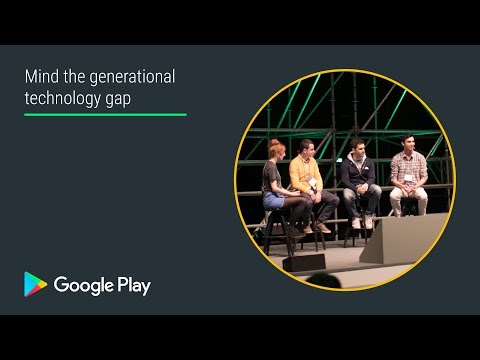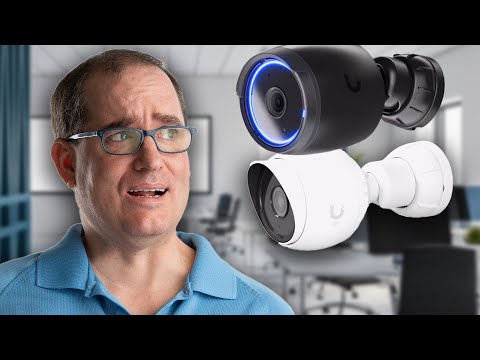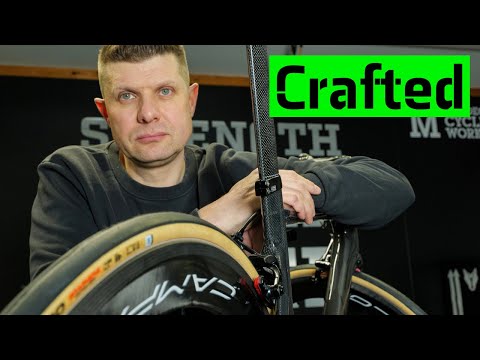Mind the generational technology gap (Apps track - Playtime EMEA 2017)

Thank, You Tamsin for the intro so it's, often said that you, are not your user as, smartphones find, their way into the hands of billions of users your, assumptions, on how people will use your apps will, constantly, be challenged, on, one, end of the spectrum you, will find a new generation of digital natives. Who. Have no memory of a live pre smartphone, on, the other hand you'll find older, digital, immigrants. That. Are only now coming to terms with smartphones, and the possibilities, that they unlock as. We think about how to build apps for, the shifting needs and behaviors of users it's, my pleasure to welcome our distinguished, panel who, will share their experiences in, building, products for, vastly different demographics, so. We're joined today by John, Neyland from, bumble which, is a new, way to meet data network, we, have come out eager the, co-founder, of a VCR the developer, behind funny mate video, a video editor and creative community and, Virg an ahmadi who, leads products and is the founder of neuro Nation a leading brain training program so onto. The first question do. You feel that there's a generational. Gap in users expectations. And behaviors, on mobile and or. Is it more of a sea change in behavior, that cuts across generations. Jon. If you'd like to go first sure I, think, it is well. I'm gonna do that annoying answer where it's both, it. Is I, think it's affecting how everyone works you've got new apps with new behaviors. The. Degree, to which it's I guess creating a true change, and how you act depends. On how much of a lifetime, of past behaviors, you have if. You're in your 40s or 50s you, have you know half a century of behaviors, and experiences you're. Grafting, on to a new app new. Way of meeting people, whereas. If you're younger in. My case I sort of you know came into a jazz this was also coming in to age or if you're another decade younger than I am which, is depressing, it, is you. Know it's really all you've ever known, and. I've found I, think the degree to which it is changing, is, directly tied to how. Much experience pre, digital pre, mobile pre-social, you, have. So. When it comes to our audience, which is quite, young. So kids. And teens we. Can see that they're really the pro users, and they're digital natives. Compared. To users. Close to my age for example they can really. Use all the nitty-gritty, details. Of the tools, we provide to, them so definitely. When. It comes to these younger, generations. You, can see that they're much more mobile. First and much more digital native compared, to the older, generation. Yeah. So we, talk now about the older people though our app of course has also younger ones but. Regarding. The old people you know we have this aging. Population, in general in society, and in, Germany for example 20%. Of the population of 65, years old or older and you. Need to imagine that by 2030. Every. Third German. Citizen will be 65, years old or older so. The, demographics, are changing a, lot and. These. Guys are different than, these young hipsters, that we have right now a lot of times in the apps.
So. With them, for. Example there there's two things that I think are, a, lot, different so one thing is perception, the other thing is understanding. Computer, interfaces. So. For perception of course. As you age your, ability. To see things to perceive, things is not, as strong anymore as it was when, you were young so. That for. Example for our app we once build a version, of it brain. Training app specifically. For the elderly and we. Do just in cooperation with a company. Yet provided rent. Rest. Houses rest, homes so. There we had to take care of the visuals for example some colors cannot, be perceived, as good so, you have to take care not only of increasing, font sizes but also changing the assets, of your app, and, that's. That, some things that that we look at, so. It sounds like everyone, here should definitely, anticipate. Their aging, audience, and think about how you, can prepare as well with your product so. For, most of you you are not your target or your, target audience so, how do you make sure that you're building products that really meet their user needs. So. Maybe I can start so. For. Us we have a big beta, tester, your user, base and we have some. Internal people. Closer. To that demographics. And age that talks with them almost every day so, we get a lot of feature requests, from from, our beta testers and. And. The sometimes. We bring new features, and they fine-tune. And, they. Give us some insights, that, we. Don't really, knew. Beforehand, and. Also we look at how they use the existing features of our app and we, get ideas to make certain, parts more. Efficient, or bring, new features based on what they actually do. So. It's, really. The constant, communications, very close communication with these active, Starr, users of our community, great. So. How about you John. I think there's sorts of two. Parts, of the flow. Of, information that, you need to look at and adjust to deal with people who are in a very different, demographic. Than yourself. The, first is the, distance from. You. Know the entire world up, to my, ears, and eyes and then the second, bit of distance which is so much smaller and yet so much harder is the distance from there to my brain, and actually understanding. It and internalizing, these things, in. The first case I think bumble, is a. Fortunate, well not, portugalete. Hard and they've succeeded in. Building up a incredibly. Powerful, network, of young. People all around University, campuses, and, in other parts, of life around that age to. Encourage, them to use the product to get feedback from them and, the workforce and mumble itself is also, predominantly. Female. And, you, know five to ten years younger than I am and. So I'm, fortunate. That there's no shortage of data coming in a long course with all the wonderful analytics, tools we get from Google and like to. Look at how they're using the app but. The second part though was, the, seed change and realizing, that you know you are, as, the product manager you are not, building something for yourself you, are a, servant, of the. Company and its customers and, you truly have to listen to these people who even if they are younger. Than you they. Don't have all the degrees that you do or the life experience, you do they have an experience, that is. Every. Bit as valid in, the case of this particular product more valid, and more, important, so. I think those two chunks are what you have to deal, with and focus on the most right yeah, what we look at in addition to of course the data and. What's interesting to us is what. Our customer care teams tells, us so we their people, call us and then. They, have questions on the product and in. These cases, you get this qualitative, feedback while, you listen how they talk and you. Want you see that they for example the old people they really don't understand, the computer, interfaces, this is not natural to them for, example you, would listen to something like you. Would ask them so what is. Your browser how do you how, do you open. Up your website and then they would say what. Is the browser. So. Then you, would ask them okay how, do you get into the Internet and they, would say well. With Google and they, don't make Chrome they mean, the search engine, so, they don't really get the concept of death and also, they don't get the concept of an app store so. This is what we have right now of course they learn but, they didn't grow up with these things so they. Take, some time for them to to, get this in. Their head yeah. So. Taking into account what you've all just said about how you're building, for people that are slightly different to yourselves what, impact does this have one the way that you think about your product roadmap.
In Technologies, that to build in. So. One. Thing I didn't know before, I started, the company is. So. How much, these young generation, was creative. And how. Much they, have these internal. Creative. Engines. That. Is looking, for ways to you know show. To. The world so. Basically. Now we are all doubling, down on building. These creative, tools. So. That they can the audience can show off their creativity, creativity. So. Using. All these new, hardware features from. House. A lot from Google and really. Trying to translate it to an easy-to-use fashion, for, our audience. I. Think, in the case of bumble. It's, forced. Me to really, evaluate assumptions. That. I wouldn't even you know it would even occurred to me that there's a different way of doing things now, I, think one of the most concrete examples. I have is, when we were in the process of building bumble, biz, which. Was released on Android today and, Germany go download it and play with it a sort, of business networking, twist, on bumble, to do more than just meet people for dating, we. Needed, to sort of find a way to importing. Your jobs in your work history or education, history into the app and, I, think anyone you, know age 29. Or higher would, just sort of automatically, think well obviously you, go to link did you know clear, as day it's like going to Google for search you just do it or I guess in the case of Germany you'd use sing sing. That. That one but. In the case of these people when I went to share, these plans with our my younger, colleagues I mean it wasn't so bad that they said what's LinkedIn, they didn't know what LinkedIn was but, that was like something that old people use and that, was just so mind-boggling, to me because how could you not use a. Networking. Thing how are you going to find a job. Shrug. Wow. So, we had to reevaluate with the core how are we gonna get you, know given a limited time. To get this done how, do we get this in in. The end we went with Facebook, because they're apparently just telling everything to Facebook I think, now in, another five years we're going to find that the, 18, years 18 year olds and five years are gonna be you know not even on Facebook, and I will pull it from snapchat, or something. Yeah. Well for, our roadmap there's there's, for example one quite interesting project, on it for. The elderly, it's, about. Digitalizing. Dementia, assessments, and we do this in a collaboration with the charity clinics, and german institute of. Artificial. Intelligence the, project is also funded by the German Ministry of Education and, Research and, this.
Is A long-term project as you can hear and. For. Digitalising dementia, assessment, we look at how it's done right now in the clinics and there. The patient, talks to the doctor the, doctor asks, some things and based on this the doctor calculates, a score that goes into dementia, assessment, so. As, you can see this is a natural conversation it's, not a strange, computer interface, so. We. Hope a lot in natural, language processing so. That we can replace this kind of things with, assistance, that can then lead the conversation with the patient and assess. This risk. In dementia, and on. Top of that it will be even more reliable, because right now for, some tests in dementia assessment, one, out of ten times the doctor calculates, it wrong yeah. So, that's quite, important. To do this right and to, offer the right interface. To the old people, great, and so. There's growing awareness that technology. Has the power to do good and also to do bad and so. Of. Course do you feel that you have a real responsibility, towards, being mindful of your users, and their overall well-being. Yeah. So. When it comes to especially for kids and teens we. Try to make, the community as safe as possible, and. You. Know suitable. For their age. We. Have a lot of. Tools. Internally. That we use to moderate, against. For example bullying. Something. That I learned, also. After. I found that this company, was bullying was a big problem in. This. Demographics. So, we have both. Community, powered tools where people can flag up certain. Comments or you, know certain profiles, and we have internal people looking, at things. For. Like. Adult, content was we thought was going to be a big problem. We had all these, tools. To filter, those out but that didn't turn out to be as big as a bullying, problem so. Definitely. I mean people nowadays, this. Is where they spend most of their time right so and. Then, we, see all these reports, where when they get a bad comment from a person. That they don't know they. Feel down we get comments, from their parents, that's now their kids are you, know crying or you know not feeling bad so there. Is all these and they're not still there yet there's a lot of things to still to do but definitely I think as app developers, we. Have this responsibility. To, protect. Our yeah, have a safe environment I. Absolutely. Think, that. We as, company's legal behind them have a responsibility. To. Be you know custodians. Of our users time and. Responsible, for, their quality of life. Especially, with, the younger ones because, again they're, just coming into digital. Technology, in life and anything, we do is gonna play a much, stronger, role in determining how they go through life and it would force a someone, in their their, 40s, or thirties or 50s. You. Know sort of a great power great responsibility. Thing, and. Within that though I think it. Isn't necessarily, against. Yourself interest, to do so it's not just you know the right thing to do I think it's also in most cases the. Best thing to do for your business, you. Know if you pursue, pointless. Vanity metrics, like the number of minutes somebody spends in your app then. Yeah you'd optimize to just try to always distract, them always get them at the most vulnerable point and try to get them in which. Might be great for that metric but it's not great for them and maybe, it's not great for more important metrics like how much they convert to being a paid customer in, the case of bumble, we, know from the data there are certain, times of the day and of the week, what, engagement, is the most valuable, there. Are actual times of day when people are more likely to be swiping, right it's. Definitely not Monday morning and. It's, we. Build, around that and I think we found that even if you if you optimize for the highest-quality engagement. As opposed to just the most engagement possible. You'll. Have an experience, that is you. Know you know better for you, and your bottom line and also better, for them and the society, that we all live, in, yeah. Well I also think we're responsible of course especially, as coming. From a health company and.
So. We should not give users, like should, not help them build unhealthy. Habits yeah of course we take the time offer users but it, should be reasonable, and right. Now of course the incentive, for us developers, is to more. Short term take the maximum. Amount of time that we can and this. Can lead to establishing. Unhealthy. Habits. However, if, really, AI is going, to reverse revolutionize. Health and if, there will be massive, amounts of data and user tracking, then. What, if the future AI assistant. Actually. Will be able to reveal. Unhealthy. Habits to users so helping. Them to, see, where, they are actually maybe spending too much time if, this, works out then of course we developers, will have more. Incentive to, help, them build like. An establish, a healthy relationship with us and not, an unhealthy one yeah. And, I fully agree I think having that user centric, approach to design is not only good of course for your users but even, more so for your bottom, line as well and so. What, would be your number one piece of advice to developers, on dealing with the generational, gap. I, mean. I cannot talk. With all the generations. And demographics, but I can only speak, the audience that I am very familiar with which are these, youngsters and they, are you. Know digital, natives. They. Can use your product in ways that you, cannot maybe imagined, or you haven't imagined before you've released it so, try to keep, it as flexible as possible and. Try to get. Feedback very. Quickly they're very eager to provide feedback and they feel like engaged. And they feel part, of the community so don't be scared to ask. Ask. Their feedback can be engaged with the, the app they, as what. We found was they're more, than willing to help. Help, the developer, especially if they like the app and if they like the product. So. Yeah. Great. What about you Joe. As. Succinctly, as possible, talk. Less and listen more. Being. Less distinct, I would say it is important. To when, you do talk start, with questions. And. Make, them open-ended, questions, I think they're you know certain dynamics, of you. Know age and. And status, and gender that, if you start where the statement it can bias what sorts of answers you're getting from these people so, I, think it's very important, to when. You are asking. These questions make. Them questions make them open-ended, and. You'll be you, know surprised, where they go and glad you found out instead of developing it and finding out the hard way. Yeah. So what, I would suggest for the future is really to start. Start, just understanding. The, demographical. Change start understanding that these old people will come and right, now they're maybe at their desktop with the laptops using web. Applications. But as as. They, grow more into, mobile. And into whatever kind of technologies, we will have it, makes sense kind of to learn how. They think and, how they what. Abilities, they have and, what. Kind of interfaces, for example natural language processing we. Can offer them to. Enable. Also older people to use our products, great. So that's it for my questions so, now, I'd like to hand over to the audience to ask any questions, as well thank, you. Any. Questions. Guess. We've solved everything yeah. Okay. So, judging. From the fact that people who are 14 years old are kinda. Still, dunno who they gonna become and three or in four years and the same happens with people when there are 70, they don't know we're gonna be in the five years how do you compute like, customer.
Lifetime Value in, these circumstances. So. Calculating. Customer, lifetime value for, for, like old people this is. Both. For young and for all I guess it's just the general idea how do you how, do you deal with the uncertainty, in in that age group you. Mean the uncertainty. That there will be alive, or. Like. Their retirement, fund could go bust because of the bank and people who are 14 years old they still don't have any money right now but they will have it later, well. I can just tell about the older people that these are the, most loyal ones. Actually because once. They are your customers, they actually. They. Are not interested, in exploring, all the different, options that they can do it's, also a cognitive, overload of course so. Also. We, know that old people are a. Lot more. Sticking. To their commitments. To their own common commitments. Trust is a lot more important to them so once they find that, you are a trustworthy, partner you. Actually have longer life term values with those then, the younger ones who just jump, from one app to the next that's what I can tell you about the older ones. For. The young ones I think the customer, lifetime value is a difficult, thing to compute. Anyway. So I, mean, we basically use the same techniques, that everyone. Use so we don't do anything specific, for younger ones, but. What Rajan, mentioned about the younger. Ones is quite, true that they. Can. Switch from different, apps if they get bored so, what we do is try to keep it fresh. We try to make weekly releases try. To bring new content, all the time so so. That the younger, ones they're always thinking, that the app is always fresh so. They don't switch that quickly. You.
2018-02-22 19:45


